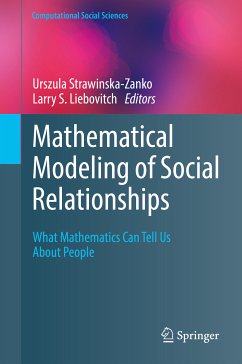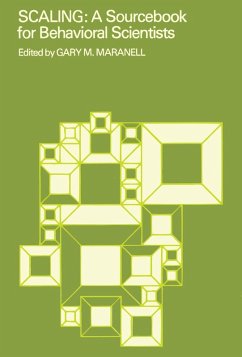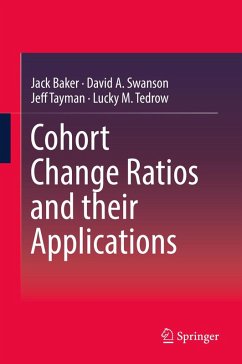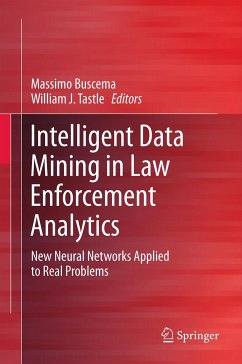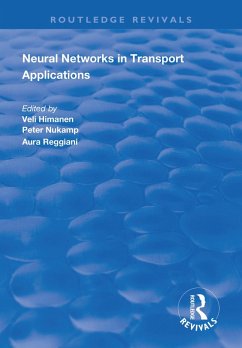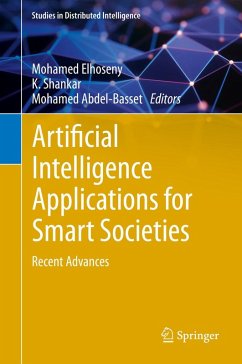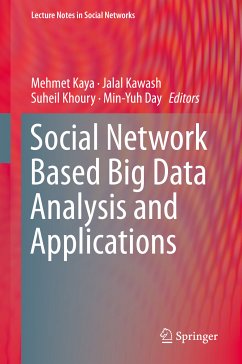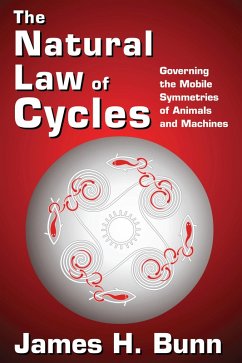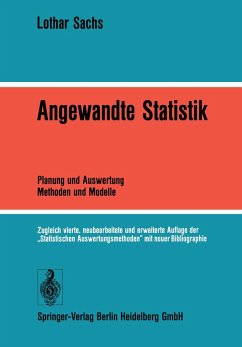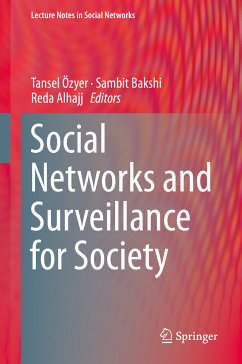
Applications of Mathematics in Models, Artificial Neural Networks and Arts (eBook, PDF)
Mathematics and Society
Redaktion: Capecchi, Vittorio; D'Amore, Bruno; Contucci, Pierluigi; Buscema, Massimo

PAYBACK Punkte
80 °P sammeln!
The book shows a very original organization addressing in a non traditional way, but with a systematic approach, to who has an interest in using mathematics in the social sciences.The book is divided in four parts: (a) a historical part, written by Vittorio Capecchi which helps us understand the changes in the relationship between mathematics and sociology by analyzing the mathematical models of Paul F. Lazarsfeld, the model of simulation and artificial societies, models of artificial neural network and considering all the changes in scientific paradigms considered; (b) a part coordinated by P...
The book shows a very original organization addressing in a non traditional way, but with a systematic approach, to who has an interest in using mathematics in the social sciences.
The book is divided in four parts: (a) a historical part, written by Vittorio Capecchi which helps us understand the changes in the relationship between mathematics and sociology by analyzing the mathematical models of Paul F. Lazarsfeld, the model of simulation and artificial societies, models of artificial neural network and considering all the changes in scientific paradigms considered; (b) a part coordinated by Pier Luigi Contucci on mathematical models that consider the relationship between the mathematical models that come from physics and linguistics to arrive at the study of society and those which are born within sociology and economics; (c) a part coordinated by Massimo Buscema analyzing models of artificial neural networks; (d) a part coordinated by Bruno D'Amore which considers the relationship between mathematics and art.
The title of the book "Mathematics and Society" was chosen because the mathematical applications exposed in the book allow you to address two major issues: (a) the general theme of technological innovation and quality of life (among the essays are on display mathematical applications to the problems of combating pollution and crime, applications to mathematical problems of immigration, mathematical applications to the problems of medical diagnosis, etc.) (b) the general theme of technical innovation and creativity, for example the art and mathematics section which connects to the theme of creative cities.
The book is very original because it is not addressed only to those who are passionate about mathematical applications in social science but also to those who, in different societies, are: (a) involved in technological innovation to improve the quality of life; (b) involved in the wider distribution of technologicalinnovation in different areas of creativity (as in the project "Creative Cities Network" of UNESCO).
The book is divided in four parts: (a) a historical part, written by Vittorio Capecchi which helps us understand the changes in the relationship between mathematics and sociology by analyzing the mathematical models of Paul F. Lazarsfeld, the model of simulation and artificial societies, models of artificial neural network and considering all the changes in scientific paradigms considered; (b) a part coordinated by Pier Luigi Contucci on mathematical models that consider the relationship between the mathematical models that come from physics and linguistics to arrive at the study of society and those which are born within sociology and economics; (c) a part coordinated by Massimo Buscema analyzing models of artificial neural networks; (d) a part coordinated by Bruno D'Amore which considers the relationship between mathematics and art.
The title of the book "Mathematics and Society" was chosen because the mathematical applications exposed in the book allow you to address two major issues: (a) the general theme of technological innovation and quality of life (among the essays are on display mathematical applications to the problems of combating pollution and crime, applications to mathematical problems of immigration, mathematical applications to the problems of medical diagnosis, etc.) (b) the general theme of technical innovation and creativity, for example the art and mathematics section which connects to the theme of creative cities.
The book is very original because it is not addressed only to those who are passionate about mathematical applications in social science but also to those who, in different societies, are: (a) involved in technological innovation to improve the quality of life; (b) involved in the wider distribution of technologicalinnovation in different areas of creativity (as in the project "Creative Cities Network" of UNESCO).
Dieser Download kann aus rechtlichen Gründen nur mit Rechnungsadresse in A, B, BG, CY, CZ, D, DK, EW, E, FIN, F, GR, HR, H, IRL, I, LT, L, LR, M, NL, PL, P, R, S, SLO, SK ausgeliefert werden.




